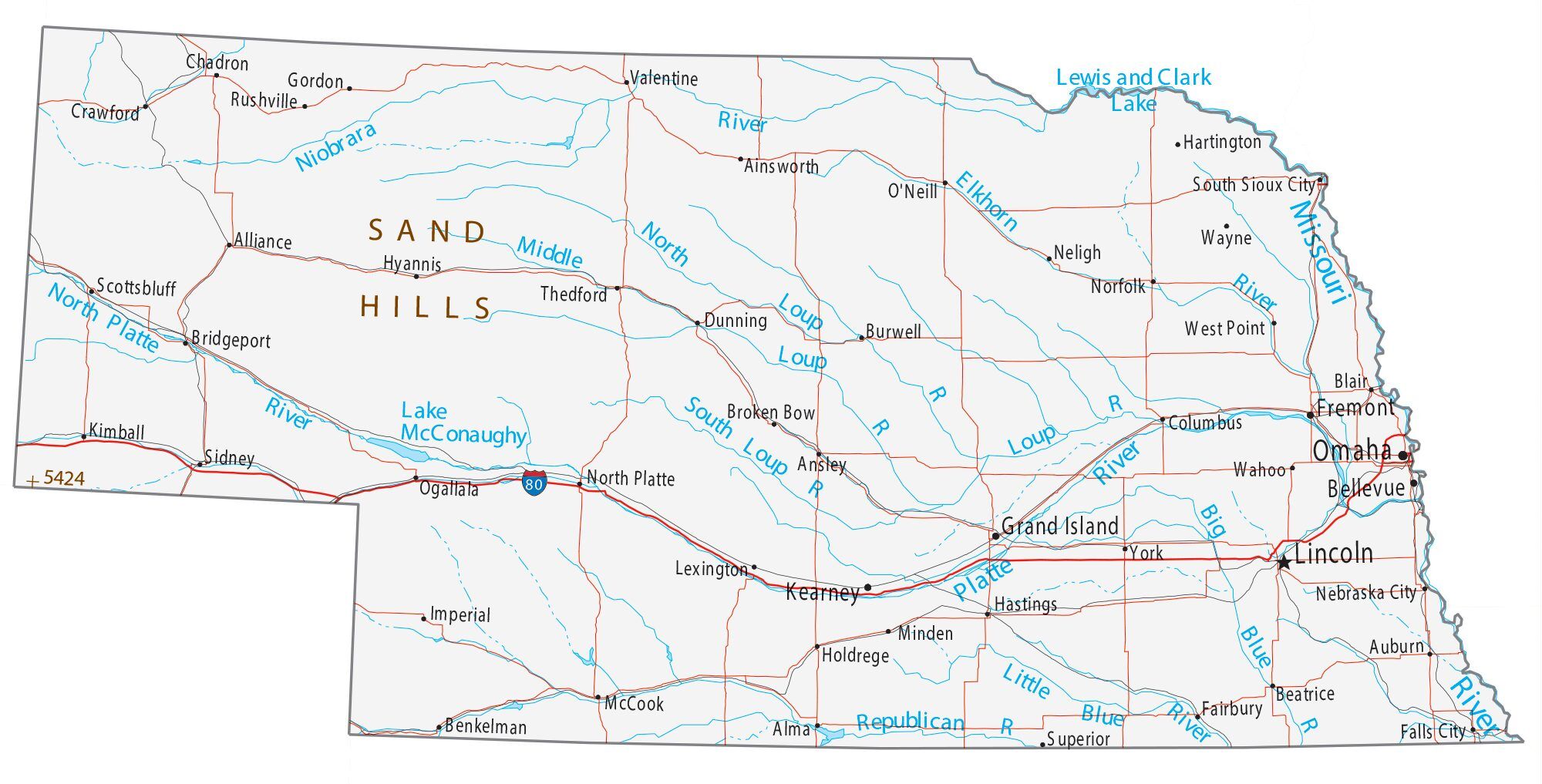About Nebraska Septic Tank Regulations
Navigating Nebraska septic tank regulations can seem overwhelming, but understanding the rules helps protect your property and the environment. Whether you’re installing, maintaining, or disposing of wastewater, knowing Nebraska-specific guidelines ensures compliance and prevents costly penalties. This article outlines everything you need to know about installation permits, tank sizing, wastewater disposal, and more. Let’s break down the key aspects of Nebraska septic tank regulations step by step.
Table of Contents
- About Nebraska Septic Tank Regulations
- Compliance Information
- Cost Information
- Local Resources & Contact Information
- Supportive Resources
- FAQs About Nebraska Septic Tank Regulations
Installation Permits
In Nebraska, you need a permit to install a septic system. The Nebraska Department of Environmental Quality oversees these regulations to ensure proper installation. Permit requirements depend on the size of the system and location.
- Permit Requirements: Before installation, homeowners must obtain a permit from their local health department or environmental agency. The permit ensures that your system meets state and local requirements for safety and environmental protection.
- Costs: The cost of a permit varies based on your location and system size. On average, Nebraska permit fees range from $200 to $500. It’s wise to check with your local environmental office or health department for exact costs.
Septic Tank Size and Placement
Nebraska has clear guidelines for tank sizing and drain field placement to ensure functionality and environmental safety.
- Tank Size Requirements: The size of your septic tank depends on the number of bedrooms in your home. For a standard 3-bedroom house, a tank of at least 1,000 gallons is typically required. Larger households may need bigger tanks.
- Drain Field Placement: Drain fields must be positioned at a safe distance from wells, property boundaries, and water sources. A minimum setback of 50 feet is usually required to prevent contamination. Proper placement ensures the system’s effectiveness and long-term functionality.
Wastewater Disposal
Nebraska wastewater disposal regulations aim to prevent environmental contamination and protect public health.
- Proper Disposal Methods: Wastewater should be treated on-site through a well-maintained septic system. Nebraska laws mandate that wastewater must be treated and properly disposed of to avoid soil and water contamination.
- Compliance Guidelines: Regular inspections and adherence to local wastewater management guidelines ensure compliance. Disposing of wastewater in unauthorized areas or using improper methods is strictly prohibited and subject to penalties.
Compliance Information
Potential Fines and Penalties
Failing to comply with Nebraska septic tank regulations can result in significant penalties. The state enforces strict compliance measures to safeguard public health and environmental quality.
- Fines: If you do not adhere to installation or maintenance regulations, fines can range from $500 to $2,000, depending on the severity of the violation.
- Legal Consequences: Serious breaches may result in mandatory system removal and reinstallation, along with environmental cleanup expenses. Compliance inspections ensure that all systems meet the set environmental and health standards.
Environmental Protections Unique to Nebraska
Nebraska’s environmental protections focus on maintaining clean water sources and preventing soil contamination. These regulations support sustainable wastewater disposal methods and emphasize the importance of eco-friendly septic system management.
- The Nebraska Department of Environmental Quality ensures that all on-site wastewater systems follow environmental quality standards.
- Local health departments enforce guidelines that prevent harmful discharges into Nebraska’s rivers, lakes, and groundwater sources.
Cost Information
Typical Costs for Septic Maintenance and Installation in Nebraska
Understanding the costs associated with installing and maintaining a septic system in Nebraska can help homeowners plan financially. Here’s a breakdown of typical costs:
- Permit Fees:
As mentioned, permit fees typically cost between $200 and $500. Costs may vary based on your location and the size of your system. - Pumping Costs:
Regular septic tank pumping is crucial for system longevity. In Nebraska, pumping costs generally range between $300 and $600, depending on tank size and accessibility. - Installation Costs:
Installing a new septic system usually costs between $3,000 and $7,000. The cost depends on factors such as system size, location, soil type, and accessibility. A system requiring extensive excavation or specialized installation may cost more.
Comparison with Montana Costs
For those considering cross-state comparisons, it’s useful to look at Montana septic tank regulations. Montana permit costs, installation estimates, and wastewater guidelines are similar to Nebraska’s in terms of requirements and environmental protection standards. Montana’s costs for installation and pumping often align with Nebraska’s estimates, ensuring comparable financial planning across both states.
Local Resources & Contact Information
State Agencies Responsible for Septic Systems
- Nebraska Department of Environmental Quality (NDEQ)
- Website: www.deq.nebraska.gov
- Contact: NDEQ Headquarters, 1200 N Street, Lincoln, NE 68508
- Nebraska Health Department
- Local health departments across Nebraska handle inspections, permits, and wastewater disposal compliance. Visit their website or call your local health department office to learn about septic system requirements in your area.
Certified Septic Service Companies
Many local companies specialize in Nebraska septic system installation, maintenance, and pumping services. Look for Nebraska-certified professionals to ensure compliance with state regulations. Ask for referrals or check reviews online to find reputable service providers.
Supportive Resources
Government Websites & Official Guidelines
- Nebraska Environmental Protection Agency Resources:
- These sites offer guidelines on system installation, wastewater disposal, and state regulations to ensure eco-friendly compliance.
- Montana Septic Information for Cross-State Reference:
- Montana wastewater management laws and on-site sewage treatment systems offer insights into similar state regulations and practices.
Downloadable Guides & Infographics
Many local and state health departments provide helpful handbooks, infographics, and downloadable resources. These materials outline septic system care, compliance schedules, and wastewater disposal best practices. They’re available on local health department websites and environmental protection agency portals.
FAQs About Nebraska Septic Tank Regulations
What are the key Nebraska septic tank regulations homeowners should follow?
Homeowners must comply with Nebraska septic tank regulations concerning installation permits, tank sizing, wastewater disposal, and system maintenance. These regulations include obtaining proper permits, ensuring correct drain field placement, and adhering to state environmental protection guidelines. Regular system pumping and inspections are also necessary to maintain compliance with Nebraska health department guidelines and wastewater management laws.
Do I need a permit to install a septic system in Nebraska?
Yes, Nebraska requires a permit to install a septic system. The Nebraska Department of Environmental Quality oversees these permits to ensure systems meet state regulations. Permit costs usually range from $200 to $500, depending on your system size and location. Contact your local health department or environmental agency for specific permit requirements in your area.
What is the recommended size for a septic tank in Nebraska homes?
The size of a septic tank in Nebraska depends on the number of bedrooms in your home. For a standard 3-bedroom house, a 1,000-gallon tank is typically recommended. Larger households may require larger tanks to meet Nebraska septic tank regulations and environmental guidelines. Proper tank sizing ensures efficient wastewater treatment and system longevity.
How much does it cost to pump a septic tank in Nebraska?
The cost to pump a septic tank in Nebraska usually ranges between $300 and $600. The price depends on factors such as tank accessibility, size, and location. Regular pumping is a crucial part of Nebraska septic maintenance to prevent clogs, backups, and costly system failures.
What are Nebraska wastewater disposal rules I need to follow?
Nebraska wastewater disposal must follow state regulations to protect soil and water sources. Wastewater should be treated on-site through a well-maintained septic system. The Nebraska Department of Environmental Quality enforces guidelines to prevent contamination. Septic systems must be positioned away from wells, property boundaries, and water sources, following the recommended setback requirements to maintain compliance with Nebraska environmental protection standards.
What penalties will I face if I don’t comply with Nebraska septic tank regulations?
Failing to follow Nebraska septic tank regulations can result in significant penalties. Homeowners may face fines ranging from $500 to $2,000. In more serious cases, the system may need to be removed and reinstalled at the homeowner’s expense. Nebraska regulations also include cleanup costs if any environmental contamination occurs, reinforcing the importance of compliance with Nebraska wastewater management laws.
How often should I pump my septic tank in Nebraska?
The recommended pumping schedule for a septic tank in Nebraska depends on household size and usage. In most cases, homeowners should have their system pumped every 3 to 5 years. Regular pumping is a vital part of Nebraska septic tank maintenance to prevent blockages, backups, and costly repairs. Adhering to Nebraska health department guidelines ensures your system remains compliant and functional.
Where can I find local resources and certified septic service providers in Nebraska?
Nebraska homeowners can contact their local health department or visit the Nebraska Department of Environmental Quality website to find certified septic service providers. Many service companies specialize in Nebraska septic installation, maintenance, and pumping. It’s crucial to hire professionals familiar with Nebraska septic tank regulations to ensure compliance with local and state guidelines.
Are there any environmental protections unique to Nebraska regarding septic systems?
Nebraska has specific environmental protections aimed at safeguarding public health and the environment. These include regulations for proper wastewater disposal, strict drain field placement requirements, and adherence to Nebraska Department of Environmental Quality guidelines. The state enforces environmental protections to prevent soil and water contamination, ensuring compliance with Nebraska wastewater management laws.
How do Nebraska septic tank regulations compare to Montana septic tank regulations?
Nebraska and Montana both have strict guidelines for septic tank installation, maintenance, and wastewater disposal. Both states require permits for installation, enforce drain field placement rules, and prioritize eco-friendly wastewater management. While permit costs and installation estimates may vary slightly between Nebraska and Montana, the overall compliance requirements align closely, following Montana wastewater laws and Nebraska health department guidelines.
What are the costs associated with septic system installation in Nebraska?
Installing a new septic system in Nebraska typically costs between $3,000 and $7,000. The cost depends on factors like system size, soil type, accessibility, and installation location. Permit fees, tank costs, and labor also contribute to the total cost. Homeowners should contact local septic service providers to get an accurate estimate for their specific project.
How do I ensure compliance with Nebraska septic tank regulations long-term?
To ensure long-term compliance with Nebraska septic tank regulations, follow these essential practices:
Schedule regular inspections to detect any issues early and comply with Nebraska wastewater management laws
- Obtain necessary permits from your local health department or environmental agency
- Regularly pump and maintain your septic system every 3-5 years
- Adhere to Nebraska wastewater disposal and drain field placement guidelines
- Work with state-certified septic service companies familiar with Nebraska health department regulations
Directory | Washington Septic Service Providers | Part 1
DIY Repairs Are Always Cheaper
Septic Regulations in Rural Areas: Essential Guide for Rural Property Owners
The Role of Perforated Pipes in Drain Fields
What Happens During a Pumping Service?
Septic Tanks vs. Sewer Systems | Choosing the Right Option







